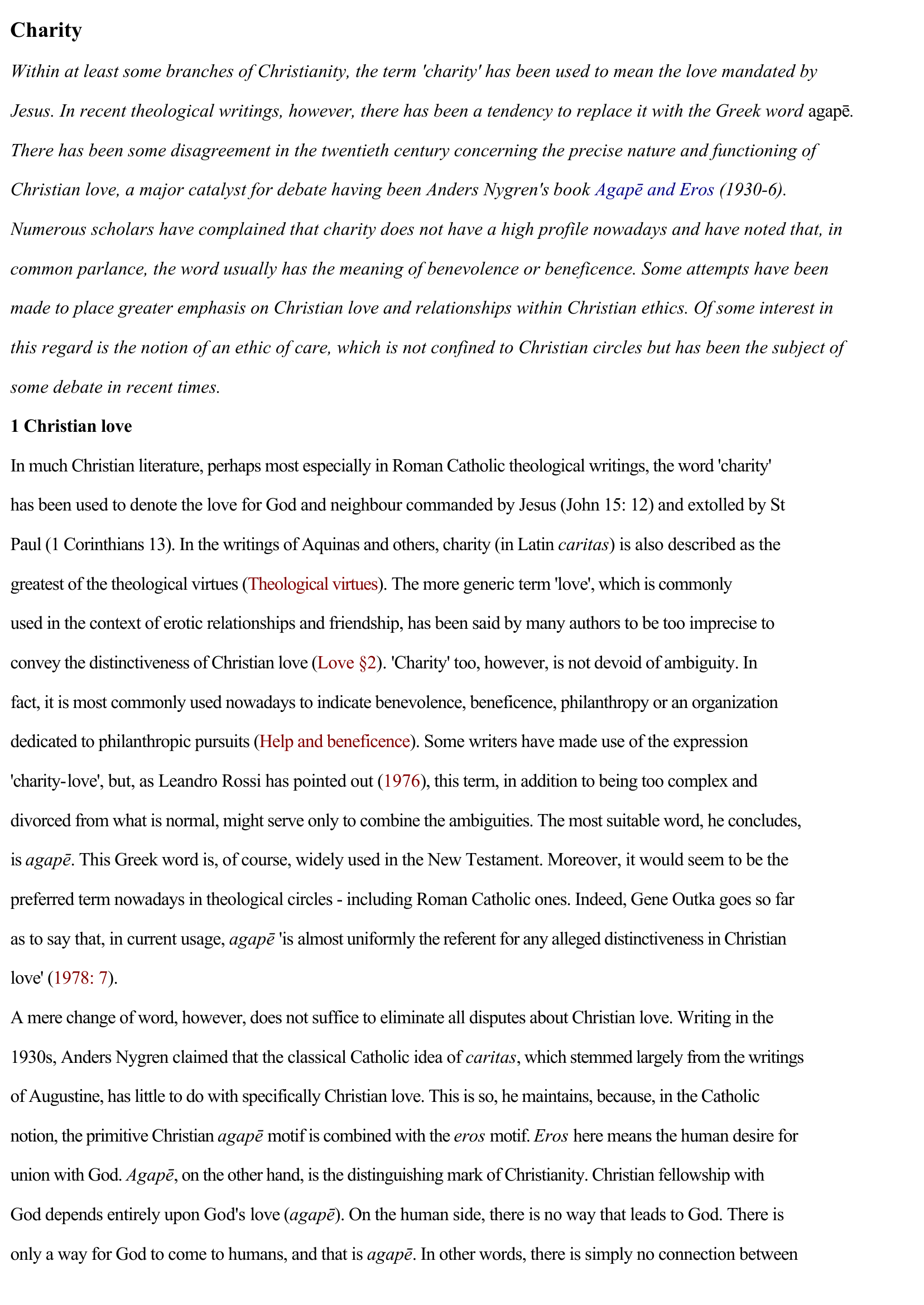Charity
Extrait du document
«
Charity
Within at least some branches of Christianity, the term 'charity' has been used to mean the love mandated by
Jesus.
In recent theological writings, however, there has been a tendency to replace it with the Greek word agapē.
There has been some disagreement in the twentieth century concerning the precise nature and functioning of
Christian love, a major catalyst for debate having been Anders Nygren's book Agapē and Eros (1930-6).
Numerous scholars have complained that charity does not have a high profile nowadays and have noted that, in
common parlance, the word usually has the meaning of benevolence or beneficence.
Some attempts have been
made to place greater emphasis on Christian love and relationships within Christian ethics.
Of some interest in
this regard is the notion of an ethic of care, which is not confined to Christian circles but has been the subject of
some debate in recent times.
1 Christian love
In much Christian literature, perhaps most especially in Roman Catholic theological writings, the word 'charity'
has been used to denote the love for God and neighbour commanded by Jesus (John 15: 12) and extolled by St
Paul (1 Corinthians 13).
In the writings of Aquinas and others, charity (in Latin caritas) is also described as the
greatest of the theological virtues (Theological virtues).
The more generic term 'love', which is commonly
used in the context of erotic relationships and friendship, has been said by many authors to be too imprecise to
convey the distinctiveness of Christian love (Love §2).
'Charity' too, however, is not devoid of ambiguity.
In
fact, it is most commonly used nowadays to indicate benevolence, beneficence, philanthropy or an organization
dedicated to philanthropic pursuits (Help and beneficence).
Some writers have made use of the expression
'charity-love', but, as Leandro Rossi has pointed out (1976), this term, in addition to being too complex and
divorced from what is normal, might serve only to combine the ambiguities.
The most suitable word, he concludes,
is agapē.
This Greek word is, of course, widely used in the New Testament.
Moreover, it would seem to be the
preferred term nowadays in theological circles - including Roman Catholic ones.
Indeed, Gene Outka goes so far
as to say that, in current usage, agapē 'is almost uniformly the referent for any alleged distinctiveness in Christian
love' (1978: 7).
A mere change of word, however, does not suffice to eliminate all disputes about Christian love.
Writing in the
1930s, Anders Nygren claimed that the classical Catholic idea of caritas, which stemmed largely from the writings
of Augustine, has little to do with specifically Christian love.
This is so, he maintains, because, in the Catholic
notion, the primitive Christian agapē motif is combined with the eros motif.
Eros here means the human desire for
union with God.
Agapē, on the other hand, is the distinguishing mark of Christianity.
Christian fellowship with
God depends entirely upon God's love (agapē).
On the human side, there is no way that leads to God.
There is
only a way for God to come to humans, and that is agapē.
In other words, there is simply no connection between.
»
↓↓↓ APERÇU DU DOCUMENT ↓↓↓

































